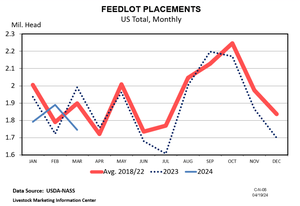Daily operations of a vet clinic benefit from a top-notch office manager. Do you have one?
July 10, 2018

Throughout my years of working in all types of businesses I have had the privilege of working with some of the very best office managers. Overseeing the daily operations of a veterinary office requires unique talents and irreplaceable attributes.
If your office is blessed with a great one or you are in the process of recruiting someone for this essential role, here are the characteristics that make a significant difference in their overall success.
Their talents
These individuals are organized, efficient and great communicators. They can talk to anyone in a tactful, diplomatic manner and yet still be in control of the conversation and glean the information they need. Effective listening is a skill they regularly utilize to ensure that they have all the information they need to make the most appropriate decision for the situation. They have a keen ability to discern whether an employee or customer is just venting, or if they clearly have a problem that needs to come to the attention of management.
They understand the busiest times of the day, the month and the year, and plan accordingly. They are rarely overwhelmed. It seems they have this unique ability to find any piece of information no matter how dated it might be.
These individuals can read a caller’s tone and personality immediately and adjust their communication style to adapt to their needs. “Gate-keeping” comes naturally to them. They can talk about family, markets and today’s weather for the right amount of time before getting them connected with the person they need, without missing their place on what they were doing before the call.
They build a staff that understands their duties and fit the desired culture of the business.
Their attitude
They are quite often the main contact for vendors, customers, visitors and professionals that work with the business on a regular basis. It is natural for them to be cordial, concise and thorough in these interactions.
These managers are nearly impossible to inconvenience, regardless of the type of day the clinic is experiencing or their personal challenges—and the last person that you want to disappoint.
Their philosophy on confidentiality is consistent and appropriate for the situation. They can easily determine the best interests of the company in any circumstance and protecting the image of the company is one of their greatest priorities. Being perceived as the “ultimate insider” of the business carries with it a responsibility that they understand and revere.
How to find one
Recruiting, interviewing and selecting this type of individual requires a broader scope and more focused effort. In addition to their skill sets, we need to know about their management style, ability to work with different personalities, proof of loyalty and capacity for multitasking.
The best way to glean this type of information is by using “behavior based” interview questions that put the candidate in real-life situations common to the responsibilities of this position. Here are a few examples:
How do you handle a customer or vendor who wants to keep talking about the weather, family, prices and so forth, when you have to get back to work?
What do you do if an employee comes to you with consistent complaints about one of their coworkers or one of the vets, and they always end their comments with, “But don’t tell the boss….”
Explain a situation where you disagreed with ownership on how to manage a situation, how you came to an agreement, and the result of your approach.
How do you handle a situation where someone is asking for confidential information about the company?
Give me a brief overview of a new concept or program that you came up with on your own, how you presented it to management, how you incorporated their input into the final plan, how you implemented the program, and the end results.
Behavior-based questions tend to provide comments from candidates that reveal crucial insights into key competencies. Though there are many acceptable answers to these questions, the unacceptable ones will be very apparent and help you quickly identify candidates that would be a bad fit.
About the Author(s)
You May Also Like





